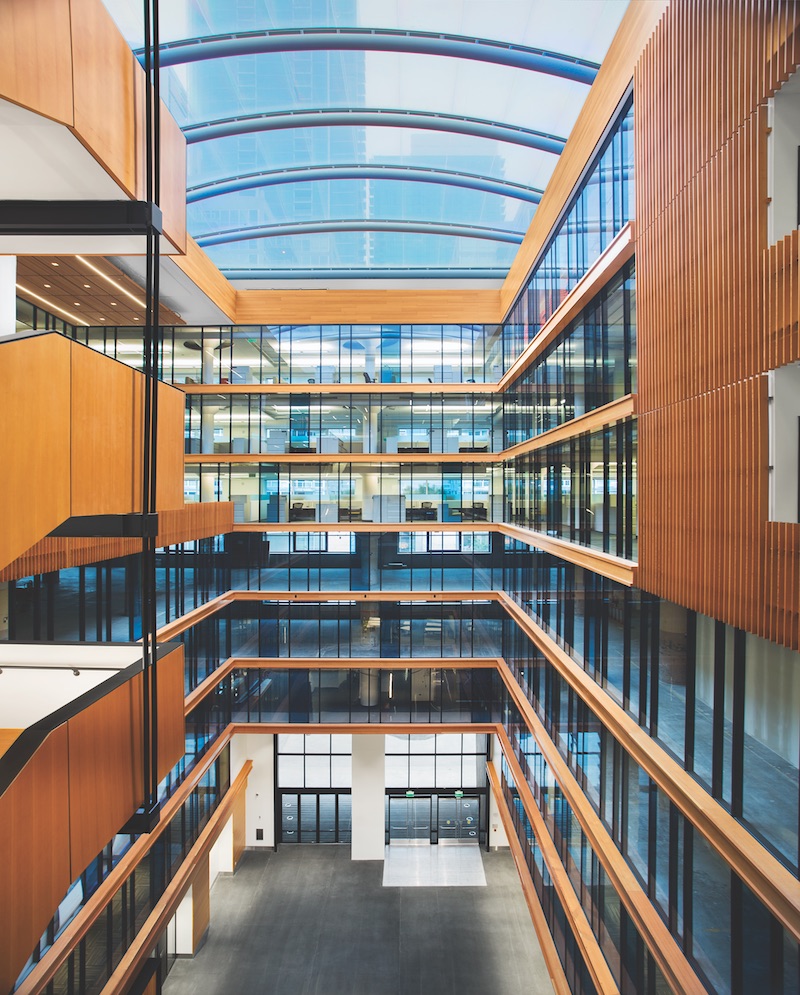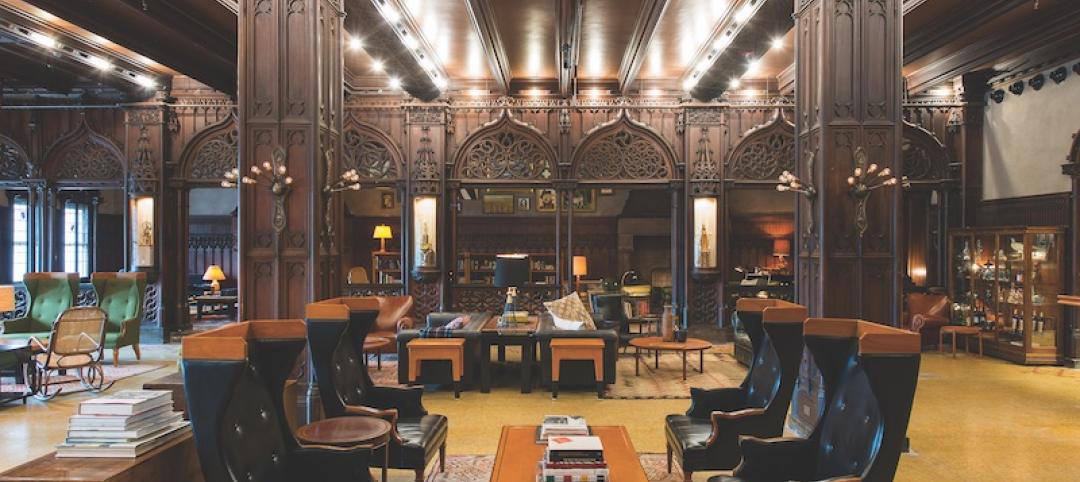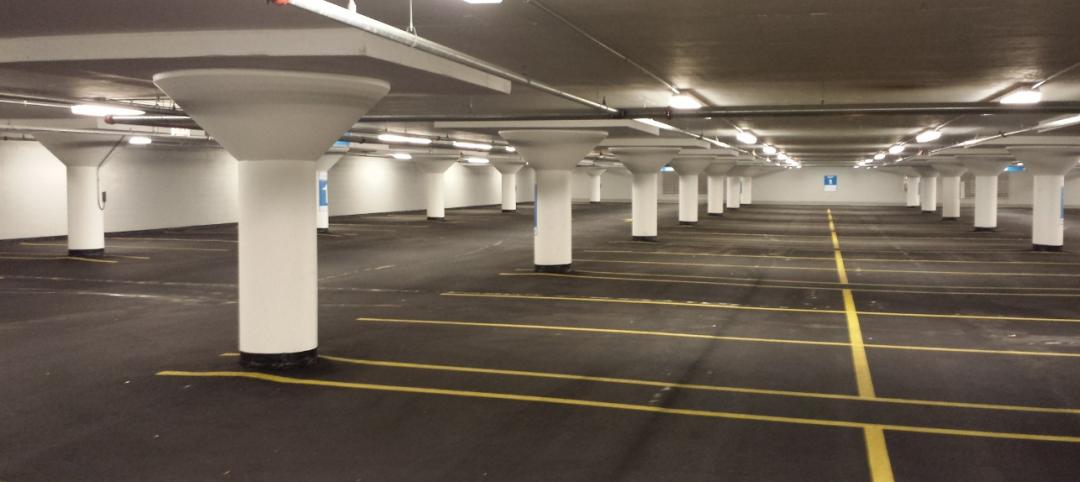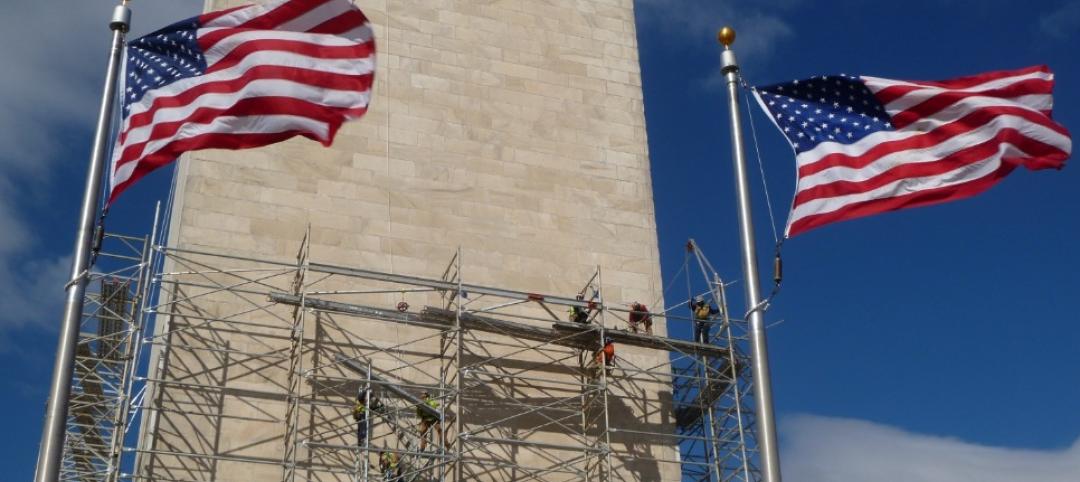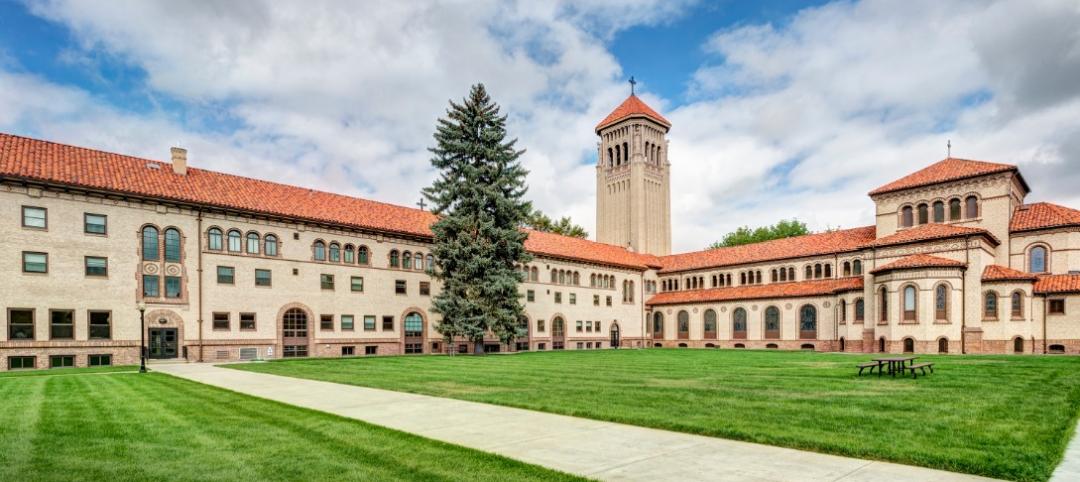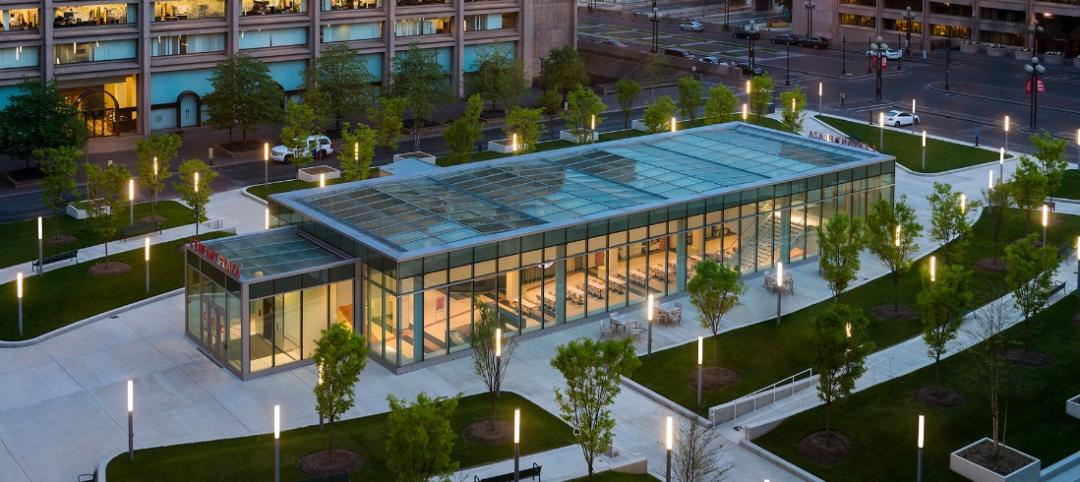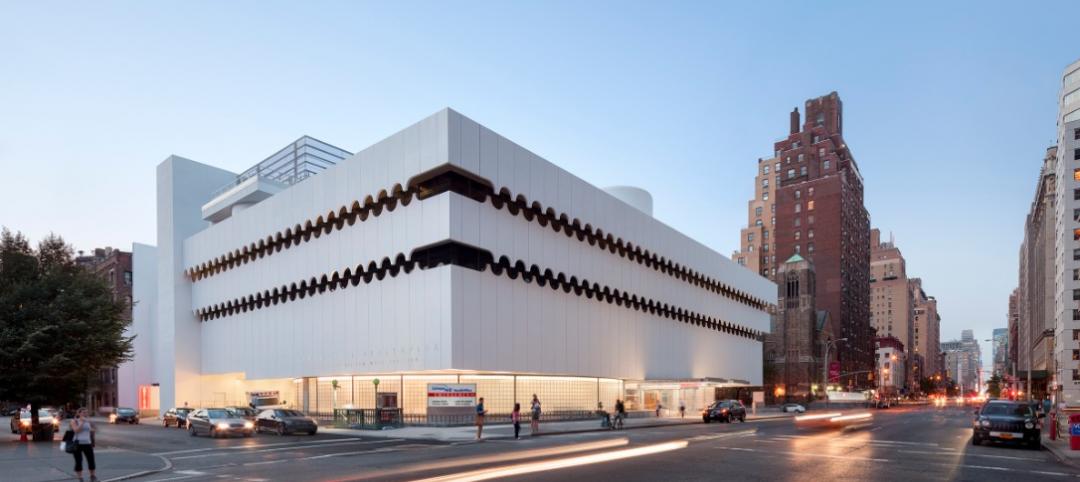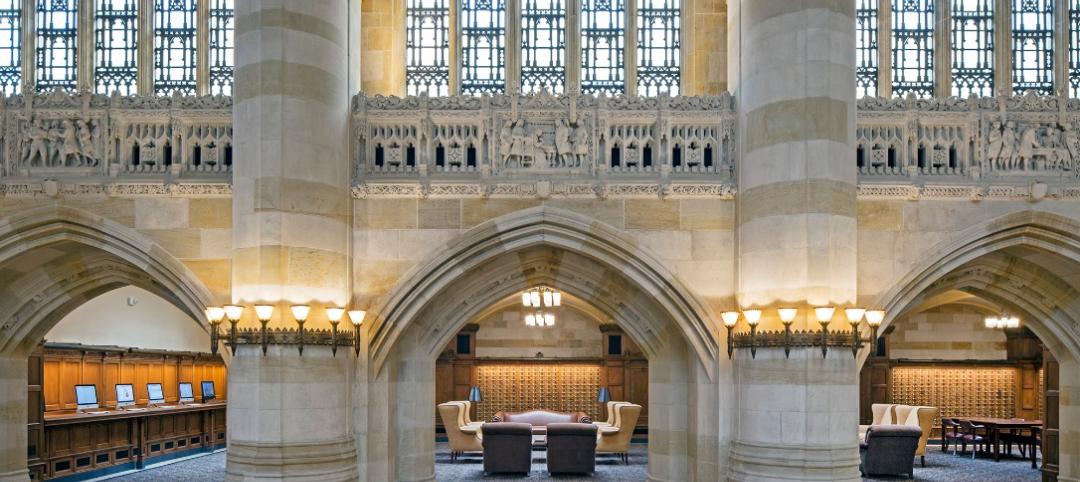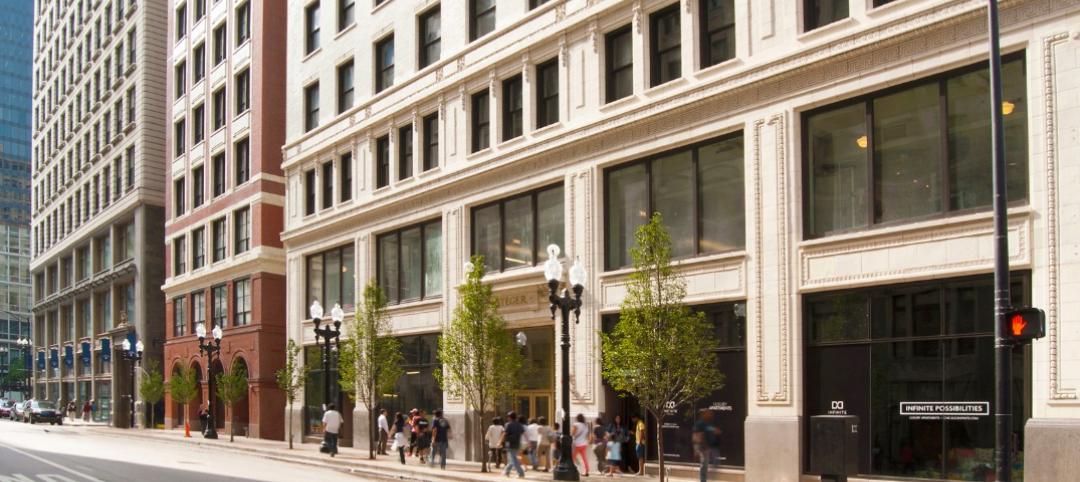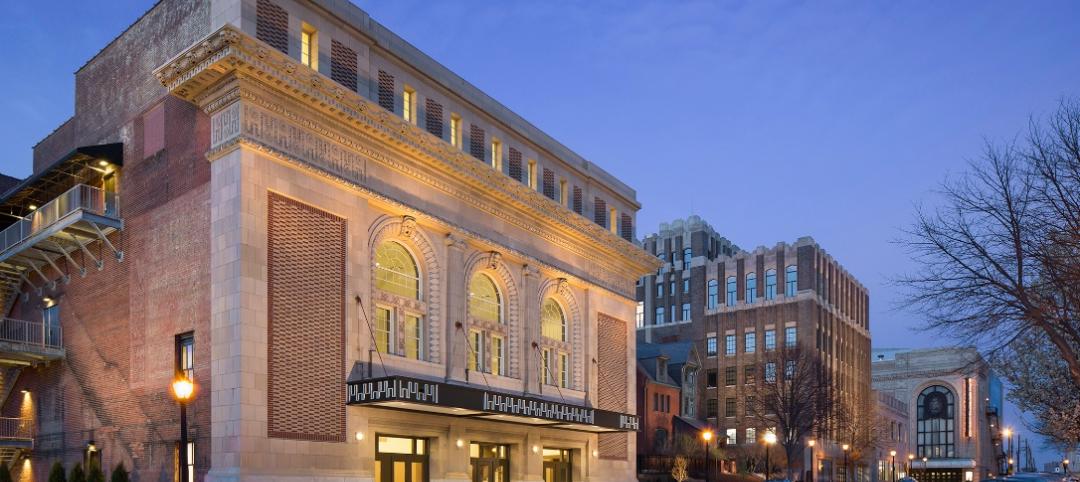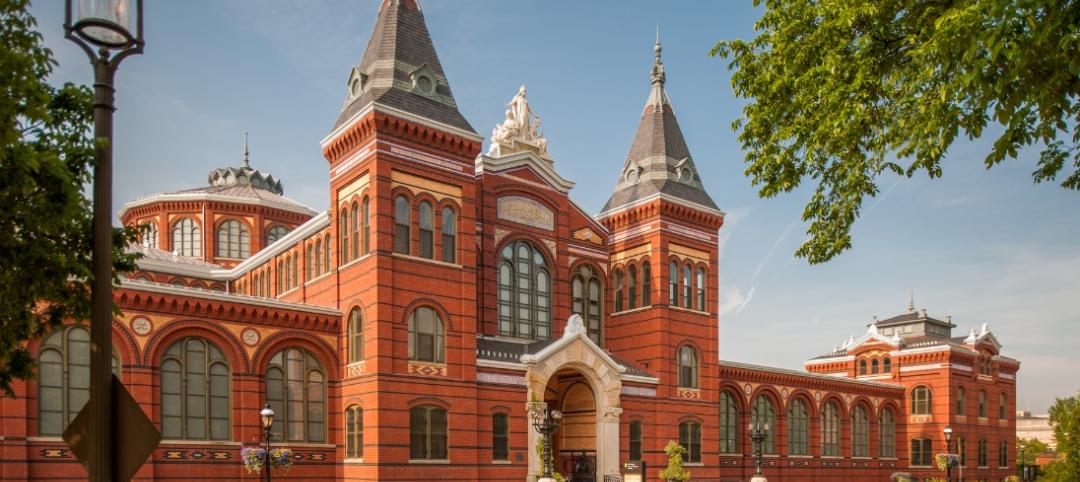The 525,000-sf Bay Area Metro Center, at 390 Main Street, San Francisco, was originally built by the federal government in 1942 to make armored vehicles. Three years ago, the owner, Bay Area Headquarters Authority, commissioned McCarthy Building Companies to lead a much-needed seismic upgrade and structural renovation. The structure’s 60,000-sf floor plates also made the interior dark and foreboding, and BAHA wanted to improve working conditions for its employees and tenants.
The centerpiece is an eight-story atrium that brings natural light into the offices of BAHA, the Bay Area Toll Authority, the Metropolitan Transportation Commission, the Bay Area Air Quality Management District, the Association of Bay Area Governments, and the U.S. Drug Enforcement Agency.
The seismic upgrade meant that the contractor would have to drill 27,000 holes into the thick interior concrete walls and floor—a considerable safety risk. McCarthy worked with a team from UC San Francisco, UC Berkeley, and toolmaker Hilti to design a dual-headed drill rig that reduced worker fatigue and the volume of airborne concrete dust kicked up by the drilling.
Zero accidents were recorded.
PROJECT SUMMARY
Silver Award Winner | San Francisco, Calif.
Building Team: McCarthy Building Companies (submitting firm, GC); Bay Area Headquarters Authority (owner); Perkins+Will (architect); TEF Design (interior architect); Holmes Culley (SE); WSP | Parsons Brinckerhoff (MEP); TEECOM (communications); and Harris & Associates (CM).
Details: 525,000 sf. Construction cost: $115 million. Construction time: January 2013 to April 2016. Delivery method: CM at risk.
Related Stories
Reconstruction Awards | Nov 11, 2016
Exclusive Chicago club re-emerges as a boutique hotel
Built in 1893 for the World’s Columbian Exposition, the CAA was an exclusive social club founded by leading figures in American sports and commerce.
Reconstruction Awards | Dec 1, 2015
Massive Chicago parking garage gets overdue waterproofing
Millennium Lakeside Garage, the largest underground parking facility in the U.S., hadn’t been waterproofed since the 1970s. The massive project took nearly 2½ years and 33,554 man-hours.
Reconstruction Awards | Nov 30, 2015
Washington Monument restored after 2011 East Coast earthquake
This restoration and repair project, which was completed under budget and eight days early (despite several setbacks), involved re-pointing 2.5 miles of mortar joints, repairing 1,200 linear feet of cracks, and installing 150 sf of Dutchman repairs. Construction took place from November 2011 to May 2014.
Reconstruction Awards | Nov 30, 2015
Denver's 107-year-old seminary campus modernized
The scope of the project included the seminary dorms, library, and chapel, all of which posed their own set of obstacles.
Reconstruction Awards | Nov 24, 2015
Center of I.M. Pei-designed plaza part of Washington redevelopment
The L’Enfant Plaza, a three-story below-grade mall, was renovated to include a new glass atrium pavilion and a 40-foot-long, interactive LED.
Reconstruction Awards | Nov 24, 2015
Manhattan's first freestanding emergency department a result of adaptive reuse
The Lenox Hill Healthplex, a restoration of the Curran O’Toole Building, has glass-block walls and a carefully preserved exterior.
Reconstruction Awards | Nov 19, 2015
Nave restored at Yale’s Sterling Memorial Library
Turner Construction and Helpern Architects revived the 150-foot-long nave, which was embellished with stained glass windows by G. Owen Bonawit, stone carvings by René P. Chambellan, and decorative ironwork by Samuel Yellin.
Reconstruction Awards | Nov 19, 2015
Infinite Chicago redevelopment bridges past to present
The renovation of three historic downtown buildings—the Gibbons and Steger Buildings and Pickwick Stables—includes a multi-level concrete walkway connection.
Reconstruction Awards | Nov 18, 2015
Sun Theater serves the youth of St. Louis
Lawrence Group and property owner TLG Beaux Arts raised $11 million to restore the 26,000-sf theater into a modern performance venue.
Reconstruction Awards | Nov 17, 2015
Smithsonian Institution’s Arts and Industries Building again an exposition and museum space
After removing decades’ worth of unfortunate additions to expose 17 historic interior spaces for the National Historic Landmark, the Building Team zoned in on the client’s key concern.


